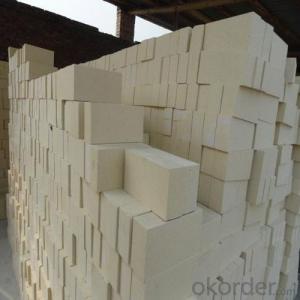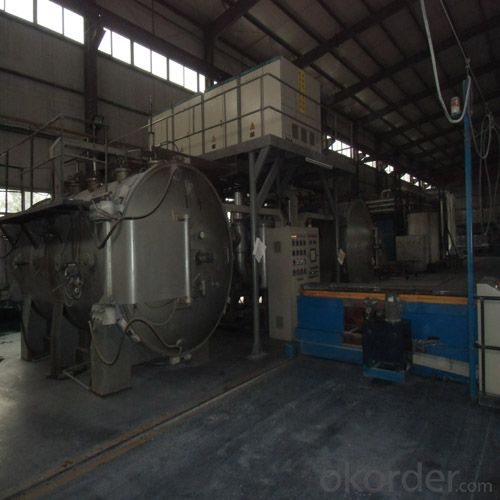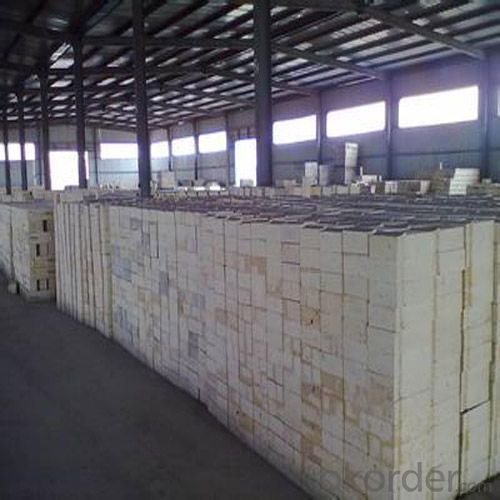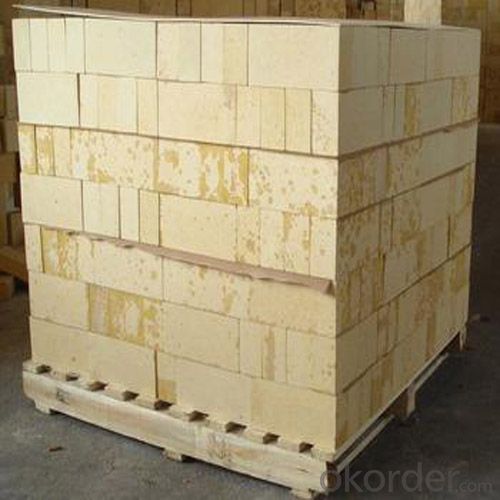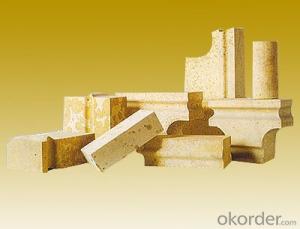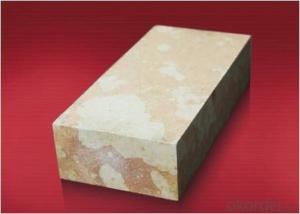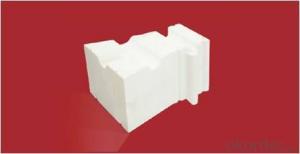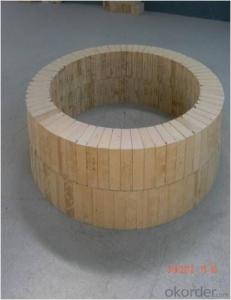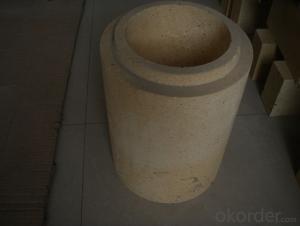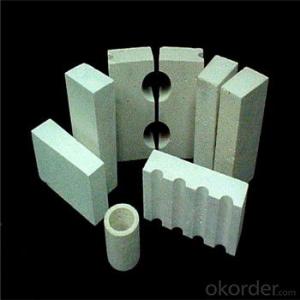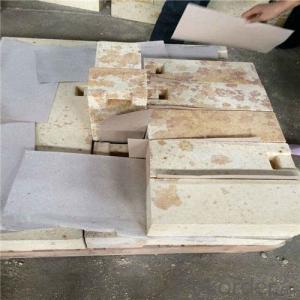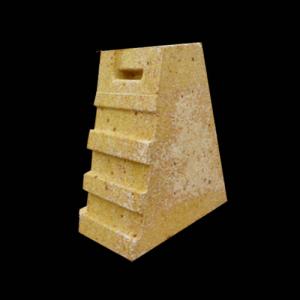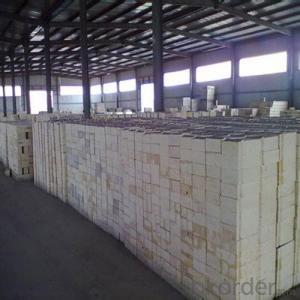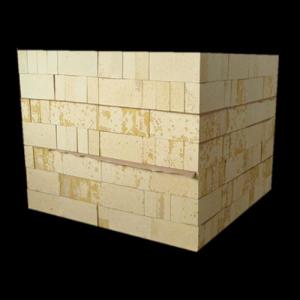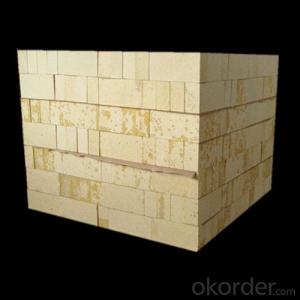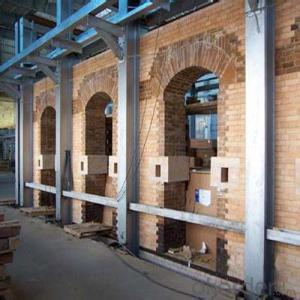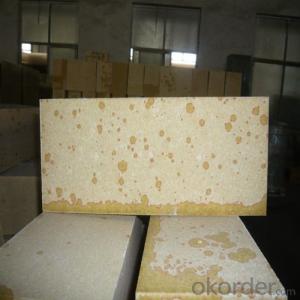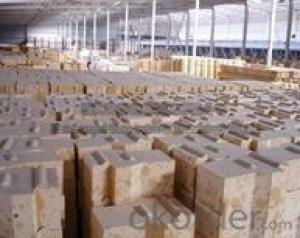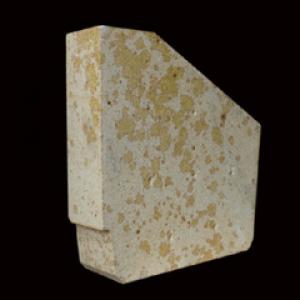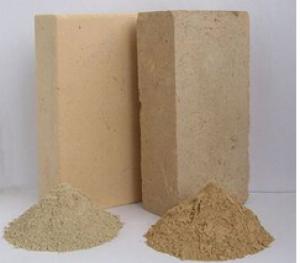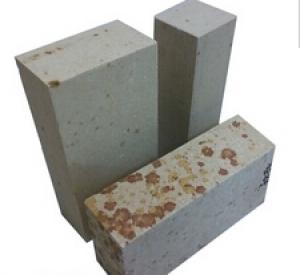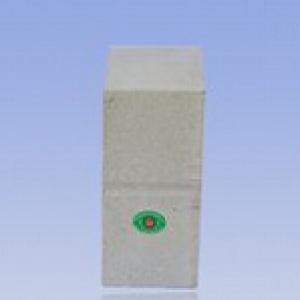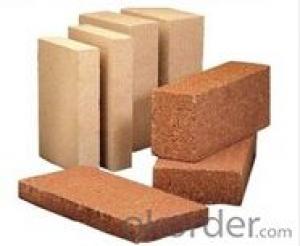Silica Brick G95 for Coke Oven
- Loading Port:
- China Main Port
- Payment Terms:
- TT OR LC
- Min Order Qty:
- -
- Supply Capability:
- 500000 pc/month
OKorder Service Pledge
OKorder Financial Service
You Might Also Like
Product Description:
General Information of Silica Brick For Coke Oven-G95
Our corporation produces a comprehensive range of silica bricks, with high silica content, all of these bricks exhibit excellent performance.
Our Silica bricks are the final result of blending excellent tridymite and cristobalite, as the main raw materials with cutting-edge technology, after mixing, drying, forming, in the high temperature shuttle kiln. There are also little quartz and vitreous within. We ensure you that the silica bricks made by us possess high quality standard and have gone through all the complicated quality control parameters. Their durability and strength adds life to the structure and they have the capacity of bearing high temperature.
Our competitive Advantage:
1.Competitive Price. Make the products competitive in your market.
2.Abundant Experience. Prevent cracks and twist in bricks.
3.Different Moulds. Save mould fees for you.
4.Lower ferric Oxide,porosity,higher refractoriness,density,higher CCS and exact tolerance.
5.Strict Quality Control. Meet clients’ quality requirement.
6.Safty packing,prompt delivery time,and excellent after-sales services.
7.Large stocks. Guarantee prompt delivery.
Silica Brick For Coke Oven---G95 | ||
Physical Properties: |
|
|
Permanent Linear Change(1450℃×2h)% | % | - |
Apparent Porosity, % | % | |
Cold Crushing Strength | Mpa | 29.4 |
Refractoriness Under Load (T0.6) | ℃ | ≥1660 |
Thermal Expansion | % | ≤1.3 |
Density | g/cm3 | - |
Chemical Analysis: |
|
|
SiO2 | % | ≥95 |
Fe2O3 | % | ≤1.2 |
Al2O3 | % | ≤0.8 |
Residual Quartz | % | - |
Note: | ||
- Q: The hot blast stove when the temperature did not rise against the brick interface decreased
- Insulation of hot blast stove, key insulation silica brick hot stove, hot blast stove is shutdown or need repairing in blast furnace.
- Q: Glass kiln brick for physical and chemical indicators?
- Glass kiln with high quality silica brick products according to the standard JC/T615-1996, the single brick is divided into 3 grades: XBG-96, ZBG-96, DBG-96.
- Q: Which material is good for furnace refractory?
- Acid refractory with silicon oxide as the main component, are commonly used in brick and clay brick. Silica is silica containing more than 94% silica products, raw materials used in silica, silica and other waste, the acid resistance of slag erosion ability, high load softening temperature, volume shrinkage after repeated burning, or even a slight expansion; but it is vulnerable to the erosion of basic slag, thermal shock resistance is poor. The brick is mainly used for thermal equipment of glass furnace, coke oven, acid furnace etc.. Clay brick with refractory clay as the main raw material, containing 30% to 46% of alumina, weak acid refractory material, heat shock resistance, resistance to acid slag, widely used.
- Q: The United States of our brick anti-dumping duties?
- . According to the relevant legal procedures, the United States International Trade Commission will make a final ruling on the anti dumping industrial injury before January 6, 2014, if an affirmative determination, the U.S. Department of Commerce will be involved in product release tax anti-dumping order.
- Q: Can not use it two brick
- The softening temperature is up to 1640~1670 DEG C, and the volume is stable at high temperature for a long time.
- Q: Common bond brick?
- Lime should contain a lot of active CaO, I decompose CaCO3 and MgCO3 not more than 5%, Al2O3+Fe2O3+SiO2 no more than 5%. When the content of large particles, burned Ca-CO3 and over burned lime, the product produced caves, affecting the quality of products.
- Q: The chemical composition of silica brick and its physicochemical index?
- Brick refers to the refractory products in more than 93% of the content of SiO2
- Q: What is the silica refractory products?
- Refractory brick with silica content greater than 90%.
- Q: High temperature refractory material?
- Basic refractories in Magnesium Oxide and calcium oxide as the main component, the main products are magnesia brick, magnesia chrome brick, magnesia zirconia brick, magnesia brick, magnesia spinel brick, magnesia calcium brick, dolomite brick and the latest development of magnesia spinel brick and so on. With Magnesium Oxide (MgO) more than 80% of the refractory brick called magnesia brick,
- Q: Physical solid waste disposal
- Too much addition will reduce the refractory and mechanical strength, increase porosity, so the amount of waste brick should not be too much.
Send your message to us
Silica Brick G95 for Coke Oven
- Loading Port:
- China Main Port
- Payment Terms:
- TT OR LC
- Min Order Qty:
- -
- Supply Capability:
- 500000 pc/month
OKorder Service Pledge
OKorder Financial Service
Similar products
Hot products
Hot Searches
Related keywords
